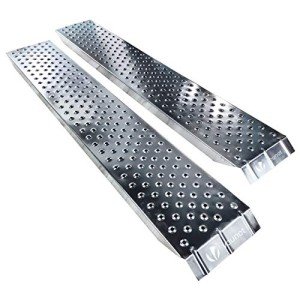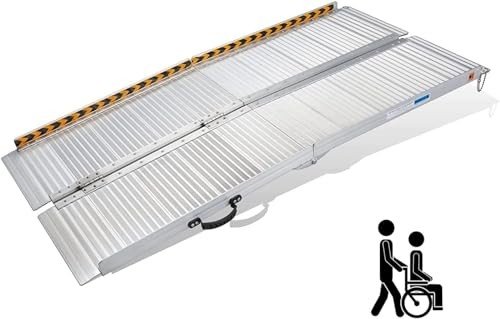See What Wheelchair Access Ramp Tricks The Celebs Are Using
페이지 정보

본문

Wheelchair Access Ramps: A Step Towards Inclusivity
In today's world, ease of access has actually ended up being a crucial aspect of making sure everybody, no matter physical capability, can browse environments quickly and separately. One of the necessary elements for enhancing accessibility is the wheelchair access ramp. This article looks into the importance of wheelchair ramps, their style, guidelines, and provides some regularly asked questions to assist understand their significance.
The Importance of Wheelchair Access Ramps
Wheelchair ramps work as a bridge for individuals with mobility difficulties, permitting them to access structures, sidewalks, public transportation, and various areas without physical barriers. Here are some key reasons that wheelchair access ramps are necessary:
- Promote Inclusivity: Ramps allow individuals with specials needs to take part fully in social activities.
- Compliance with Regulations: Many countries have laws that need public structures and spaces to be available.
- Improved Safety: Ramps reduce the danger of mishaps that may happen when browsing stairs or uneven surface areas.
- Boosted Mobility: They offer practical access for individuals using wheelchairs, walkers, or other assistive devices.
Style Considerations for Wheelchair Ramps
When creating a wheelchair ramp, numerous elements require to be taken into consideration to guarantee efficiency and safety. Below are some necessary design elements:

| Design Element | Recommendation |
|---|---|
| Slope Ratio | A maximum slope of 1:12 (4.76 degrees) is advised for accessibility. |
| Width | At least 36 inches large for standard wheelchair access. |
| Surface area Material | Non-slip materials should be used to prevent accidents, even in wet conditions. |
| Landings | Flat landings at the top and bottom of ramps ought to be at least 60 inches long. |
| Curbs | 2- to 4-inch curbs can assist avoid wheelchairs from rolling off the sides of the ramp. |
| Handrails | Hand rails need to be positioned at 34 to 38 inches in height on both sides of the ramp. |
Laws and Standards
In the United States, the Americans with Disabilities Act (ADA) sets clear requirements for wheelchair ramps to guarantee public availability. Similar guidelines exist in other countries as well. Here are some key guidelines from the ADA regarding wheelchair ramps:
- Slope: A ramp needs to have a maximum increase of 30 inches for every single 1 foot of ramp run.
- Width: Ramps need to be at least 36 inches large, although they can be wider for much better ease of access in high-traffic areas.
- Landings: Must be flat and at least 60 inches in length for both the top and bottom of the ramp.
- Surface areas: The surface needs to be steady, firm, and slip-resistant.
- Handrails: Ramps that are more than 6 inches high ought to consist of hand rails.
Kinds Of Wheelchair Ramps
There are different types of wheelchair ramps customized for particular requirements and environments. Here are some typical types:
Permanent Ramps: These are constructed from materials such as concrete, wood, or metal and are created for long-term use. They are often used in public structures and homes.
Portable Ramps: Lightweight and simple to carry, Portable Ramps For Steps ramps can be utilized temporarily and are ideal for individuals who need a ramp for short durations.
Folding Wheelchair Ramps Ramps: These ramps fold in the middle, making them easy to store and transport. They are best for those who require access to numerous locations.
Limit Ramps: Used primarily for doorways, these ramps help remove little vertical barriers. They are essential for homes and structures where door thresholds present an obstacle.
Modular Ramps: Made from prefabricated areas that can be assembled on-site, modular ramps can be personalized for specific structure requirements and can operate in various settings.
Frequently Asked Question About Wheelchair Access Ramps
1. Who is accountable for setting up wheelchair ramps?
The responsibility for setting up wheelchair ramps can differ. In public spaces, it is generally the responsibility of structure owners or towns to comply with accessibility regulations. In property spaces, homeowners are responsible for setup.
2. Exist financial support programs for installing ramps?
Yes, there are different support programs, including government funding and non-profit companies, that aid people afford wheelchair ramp installations. It's worth looking into regional alternatives.
3. How do I preserve a wheelchair ramp?
Regularly examine the ramp for cracks, protruding nails, or loose surface areas. Keeping it tidy and complimentary from debris or snow during winter is necessary for guaranteeing safety.
4. Will a wheelchair ramp impact home worth?
While installing a wheelchair ramp might not straight increase residential or commercial property worth, it can make a residential or commercial property more enticing to purchasers looking for availability options.
5. How can I discover a qualified professional to install a wheelchair ramp?
Start by searching for specialists who specialize in accessibility construction. Examine referrals, evaluations, and reviews to guarantee they have experience in building certified ramps.
Wheelchair access ramps are important for enhancing availability and promoting inclusivity for individuals with mobility obstacles. By adhering to design guidelines and guidelines, these ramps can supply safe and simple access to structures and public areas. As society moves towards higher inclusivity, the presence of wheelchair ramps acts as a testament to our dedication to breaking down barriers and opening doors for everyone.
Whether as a small addition to a home or part of a larger public infrastructure project, these Mobile Ramps represent a substantial stride towards a more accessible world for all.
- 이전글10 U-Shaped Sectional Sofa Meetups You Should Attend 25.11.05
- 다음글비아그라 모양 비아그라 정품구입합니다 25.11.05
댓글목록
등록된 댓글이 없습니다.

